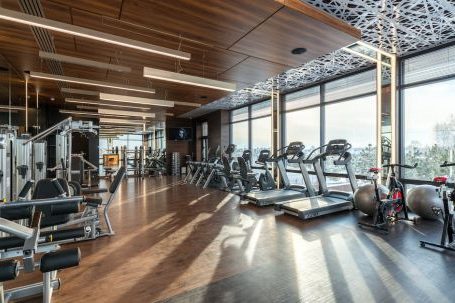Muscle recovery is an essential part of any fitness routine. After an intense workout, your muscles need time to repair and rebuild themselves. One crucial factor in this process is nutrition. What you eat can greatly affect how quickly your muscles recover and how well they adapt to the stress of exercise. In this article, we will explore the best foods for muscle recovery and how they can help you achieve optimal results.
Protein-packed Powerhouses
Protein is the building block of muscle tissue, making it an essential nutrient for muscle recovery. Consuming an adequate amount of protein after a workout can help speed up the repair and rebuilding of your muscles. Lean sources of protein such as chicken, fish, eggs, and tofu are excellent choices. These foods not only provide the necessary amino acids for muscle repair but also offer other important nutrients like vitamins and minerals.
Supercharge with Superfoods
Certain foods are known for their high nutrient content and powerful antioxidants, making them ideal for muscle recovery. Blueberries, for example, are packed with antioxidants that can help reduce inflammation and oxidative stress caused by intense exercise. Other superfoods like spinach, kale, and broccoli are rich in vitamins and minerals that can aid in the repair and growth of muscle tissue. Including these superfoods in your post-workout meals can provide the necessary nutrients to support muscle recovery.
Carbohydrates for Energy
While protein is crucial for muscle repair, carbohydrates play a vital role in replenishing energy stores. Consuming carbohydrates after a workout helps restore glycogen levels, which are depleted during intense exercise. Opt for complex carbohydrates like whole grains, sweet potatoes, and quinoa, as they provide a steady release of energy and are rich in fiber, vitamins, and minerals. Including a source of carbohydrates in your post-workout meal can help replenish energy levels and support muscle recovery.
Healthy Fats for Inflammation
Although fats often get a bad reputation, certain types of fats can be beneficial for muscle recovery. Omega-3 fatty acids, found in fatty fish like salmon, trout, and mackerel, have anti-inflammatory properties that can help reduce muscle soreness and inflammation. Nuts, seeds, and avocado are also excellent sources of healthy fats that can aid in muscle recovery. Including these foods in your diet can help reduce inflammation and promote faster muscle repair.
Hydrate for Optimal Recovery
Proper hydration is often overlooked but is crucial for muscle recovery. During exercise, you lose fluids through sweat, and adequate hydration is necessary to maintain optimal muscle function. Drinking enough water before, during, and after your workout can help prevent dehydration and support the recovery process. Additionally, electrolytes like potassium and magnesium, found in foods like bananas and leafy greens, can aid in the rehydration process and prevent muscle cramps.
Timing is Key
While knowing the best foods for muscle recovery is important, timing your meals correctly is equally crucial. Consuming a balanced meal containing protein, carbohydrates, and healthy fats within 30 minutes to an hour after your workout can maximize the benefits of muscle recovery. This window of time, known as the “anabolic window,” is when your muscles are most receptive to nutrient uptake. By providing your body with the necessary nutrients during this window, you can optimize muscle repair and growth.
Incorporating these foods into your post-workout meals can greatly enhance muscle recovery and improve overall performance. Remember to focus on lean sources of protein, include superfoods packed with nutrients, replenish energy stores with complex carbohydrates, incorporate healthy fats to reduce inflammation, and hydrate properly. By following these guidelines, you can ensure that your muscles have the best chance to recover and adapt to the demands of your exercise routine. So, fuel your body with the right foods and watch your muscles grow stronger and more resilient with each workout.





